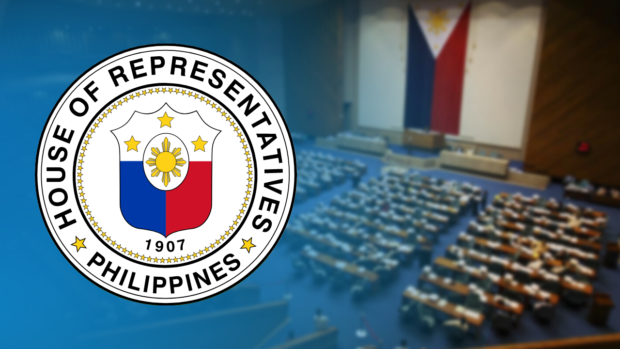House panel approves bill extending estate tax amnesty

INQUIRER FILE PHOTO
MANILA, Philippines — A bill extending the amnesty for payment of estate taxes until June 15, 2025 has been approved by the House of Representatives Committee on Ways and Means.
During the hearing on Tuesday, 31 members of the committee voted in favor of House Bill (HB) No. 7409 authored by Speaker Ferdinand Martin Romualdez, Majority Floor Leader and Zamboanga City 2nd District Rep. Manuel Jose Dalipe, Ilocos Norte 1st District Rep. Ferdinand Alexander Marcos, and Tingog party-list Reps. Yedda Marie Romualdez and Jude Acidre.
Only one member of the panel — Alliance of Concerned Teachers party-list Rep. France Castro — voted against it.
When HB No. 7409 is enacted, Section 6 of Republic Act No. 11213 or the Tax Amnesty Act provisions Estate Tax Amnesty would be amended by changing the deadline from June 15, 2023, to June 14, 2025.
Committee chair and Albay 2nd District Rep. Joey Salceda said that the approval of the bill is important since a lot of families have failed to settle the estate of their deceased relatives — making the provision of additional time necessary.
Article continues after this advertisement“An estate tax is a tax on the right of the deceased person to transmit the estate to lawful heirs and beneficiaries. RA No. 11213 was passed to provide taxpayers immunity from the payment of estate taxes until June 15, 2021. However, the pandemic hampered the settlement of estates, which to begin with, is inherently challenged by family sensitivities,” Salceda said.
Article continues after this advertisement“To give people more time to settle estates, we extended the estate tax amnesty from June 15, 2021, to June 14, 2023, by enacting RA No. 11569 last Congress. We also streamlined the procedure by removing the requirement of proof of settlement in the payment of the estate tax under the same law. Now that the extended deadline—June 14, 2023– is upon us, we are informed that this tax amnesty is yet to be optimized,” he added.
According to Salceda, some families still struggle with filing required documents, while some fail to comply with cash requirements.
But despite agreeing with the extension, the committee chairperson said he hopes it is the last time the estate tax amnesty is extended.
“At the same time, I want the Committee to consider more proactive steps to optimize this second estate tax amnesty extension. I sincerely hope this will be the last time we extend RA 11213 – because it defeats the purpose of tax compliance if violations will always be forgiven,” he said.
“The steps we can study include simplifying the filing procedure, including the option to do it online, opening assistance centers in local governments, relief from the judiciary on rules for signing a special power of attorney or SPAs for OFWs (overseas Filipino workers) abroad, and other steps to address the non-tax barriers to expeditiously settling estates,” he added.
Republic Act No. 11569, which also amended the mother law or R.A. No. 11213, was signed by former president Rodrigo Duterte last July 2021.
The Duterte-signed R.A. No. 11569 sought to enhance revenue collection by granting amnesty on unpaid internal revenue taxes imposed by the national government for the taxable year 2017 and prior years.
This means that the estate of descendants who died on or before December 31, 2017 — with or without assessments duly issued thereof, and whose estate taxes remained unpaid or have accrued as of the same date — were covered.
However, delays brought about by the COVID-19 pandemic also hampered the processing of estate taxes as different lockdowns and restrictions were placed in several areas since the law was signed.